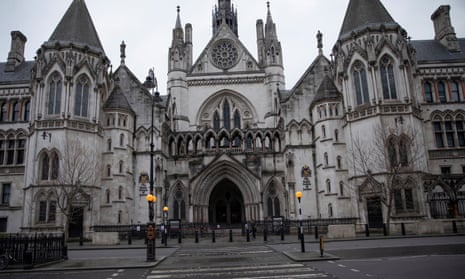Violent offenders, paedophiles and homophobic assailants are among those who have avoided prison sentences after their cases were affected by long delays in the criminal justice system, ministers are being warned.
A long-running court backlog has been exacerbated by Covid, with some cases delayed for years. However, lawyers are warning that there are now a number of cases in which delay has contributed to a lesser sentence.
The warnings have raised concerns that years of cuts to the courts system are now not only leaving victims and defendants in limbo for long periods, but also affecting the punishments being handed out. While delays have been caused by the pandemic, many lawyers believe years of cuts to the justice system in England and Wales are also to blame. Hundreds of courts have closed in the past decade, while judge sitting times have also declined.
Under current sentencing guidelines, judges can consider delays in a case that are not the defendant’s fault as a mitigating factor. Defendants may have had a case hanging over them for a long time, or taken measures to rehabilitate since being charged.
Brandon Forrester was handed a suspended sentence after being convicted of a homophobic attack in Manchester. The judge cited delays to the proceedings in the decision.

Three men involved in a late-night street assault in Lincoln also escaped jail after a two-year delay. The judge said it was “quite wrong that things should take this long to come to court … If this case had come before me as it should have and more quickly, you would be going to custody.”
A Kent man involved in a high-speed chase with police who dangerously weaved through traffic and did not have a driving licence avoided prison as a result of a three-year delay. “Bluntly, it is a case that should have been dealt with much closer to the time and the reality is you would have faced a sentence of imprisonment of between four to six months,” said the judge.
Last summer in Rugby, a paedophile found guilty of attempting to groom a 12-year-old girl – actually a police officer impersonating a girl online – avoided prison due to delays caused by Covid. Paul Appleton had been told to expect a custodial sentence. However, the judge concluded: “The circumstances that have arisen since 12 March, and the delay caused, lead me to conclude that in this particular instance I can draw back from immediate imprisonment.”
David Lammy, the shadow justice secretary, who compiled the cases, said: “Justice delayed is justice denied. Victims of paedophilia, rape, assault and hate crimes are being let down by the delays to the justice system this government has helped create.
“To prevent further victims missing out on justice in the pandemic, Labour is calling for the rapid roll-out of further ‘Nightingale courts’ and reduced wartime juries that will allow more trials to continue. After a decade of decline, we need to rebuild the justice system to make the UK the fairest country in the world.”

This comes after figures last week revealed that the numbers being prosecuted or handed out-of-court disposals fell by 22% in the 12 months to September 2020, compared with the same period a year earlier. It also emerged that there had been a 25% drop in the number of offenders convicted and a similar decrease in the number of people sentenced. The backlog in the crown courts has hit a record of 56,000 cases, with some cases timetabled for 2023.
However, a spokesperson for the Ministry of Justice said that more serious offenders were going to prison under this government, and for longer, than ever before. “Outstanding magistrates’ cases have fallen by 50,000 since last summer, cases dealt with in the crown court reached pre-Covid levels in December and we have a record number of courtrooms open for jury trials,” the spokesperson said.
“This is thanks to our efforts responding to the pandemic – and just this week we announced more Nightingale courts to go alongside our greater use of technology, extra staff and hundreds of millions of pounds worth of investment.”
The spokesperson said the government was spending £113m to ease the pressures on courts and tribunals, including recruiting 1,600 extra staff, employing more technology and deploying Covid safety measures. They said England and Wales was believed to be the first comparable major jurisdiction in the world to resume jury trials, with hundreds now being listed each week.










